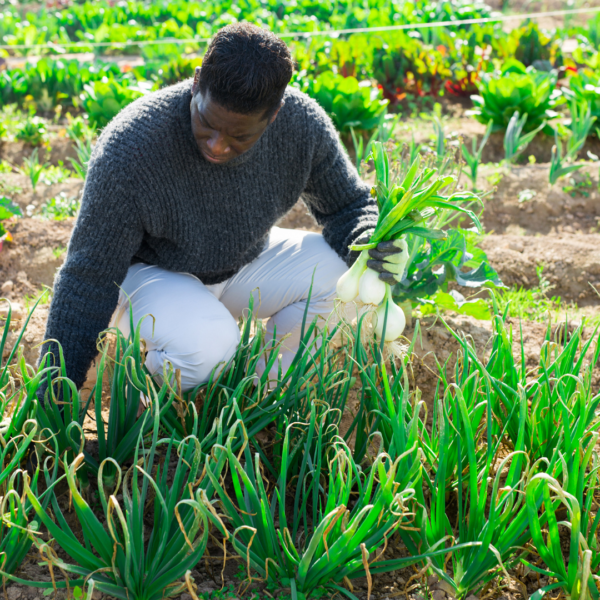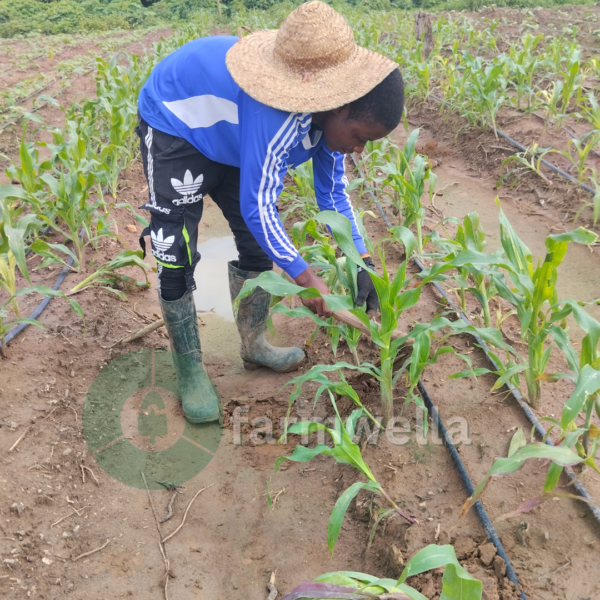
As a startup farmer, one of the biggest challenges is deciding which crops to grow. Many farmers have to resort to trial and error to determine which crops will yield profits. However, this can be a costly and time-consuming process.
In this article, we will highlight the top 5 most profitable crops to grow in Africa. But before we delve into that, it’s important to consider several factors and ask yourself some critical questions as a startup farmer looking to make gains. By taking the time you weigh these factors and ask these questions, you can make informed decisions that will set you on the path to success in agriculture.
Factors You Should Consider when Deciding on the Crops to Grow on Your Farm
1. Market Demand
It is not enough to simply pick a crop that looks promising; a profitable crop must have a market that demands it. The following are some of the questions you need to ask when looking into the market demand:
- What are the current market trends?
It’s important to understand what crops are currently in demand and which ones are declining in popularity. This information can help you determine whether a particular crop you are considering is on the rise or decline in the market.
- Who are the potential buyers for this crop?
Knowing who your potential buyers are can help you understand the demand for your crop and the price points you can expect to receive. You can also tailor your crop production to meet the specific needs of your buyers.
- What is the current price for this crop?
Understanding the current market price for a crop can help you determine whether it is a profitable venture. You can also use this information to negotiate with buyers and ensure that you are receiving a fair price for your crop.
2. Climate and Soil Conditions of the Farm Location
Different crops require different growing conditions, including climate and soil conditions. Before deciding on a new crop, you should research the growing conditions required for that crop and determine whether your farm’s climate and soil conditions are suitable for that crop. The following are some of the questions you need to ask when deciding on a new crop according to the climate and soil condition of the farm location:
- What is the climate like in the farm location?
Thorough research and understanding of the local climate are crucial to determine suitable crops for an area as certain crops may not thrive due to varying climate conditions.
- What is the soil type in the farm location?
Each farm location has unique soil types, and certain crops may not be suitable for specific types of soil. Thorough research of the soil is crucial in selecting the appropriate crop. Factors such as soil type, pH level, and drainage should be considered.
3. Labor and Inputs Requirements
In order to make an informed decision about which crop to grow, it is crucial to consider the labor and input requirements, as they can impact financial costs and overall farm plans. Thorough research is necessary to determine the costs associated with growing specific crops. Here are some questions to ask when considering labor and input requirements:
- What is the availability and cost of the necessary inputs?
Research the inputs required for a crop, such as fertilizers, pesticides, and water, before deciding whether you have the necessary resources to provide them.
- How accessible is labor to the farm location?
Research the labor requirements for a crop before deciding whether you have the necessary resources, including access to the right labor, to grow and harvest it
Top 5 Most Profitable Crops You Should Consider Growing on Your Startup Farm In Africa

After considering some of the important factors to keep in mind when choosing the right crops for a startup farm, it’s important to identify crops that are well-suited for the African market and have the potential to be profitable when grown successfully. So let’s check out some of the crops that you can consider growing on your startup farm.
1. Maize
Maize, also known as corn, is a versatile crop that can be grown in different soil and climate conditions, making it a great option for many parts of Africa. Maize is a staple food in many African countries and it is widely accepted in the African markets.
Maize has a high yield potential, making it an attractive option for farmers looking to increase their production and profits. With proper management and care, maize can produce a good yield even in areas with low rainfall.
2. Tomatoes
Tomatoes are a popular and versatile crop that can be grown successfully in various regions of Africa. They can be successfully grown in different regions of Africa and they offer a high return on investment if managed properly. Tomatoes can be grown in both greenhouses and open fields, providing flexibility for farmers with varying resources.
But growing tomatoes requires regular attention to inputs like fertilizers, water, and pesticides, which can be labor-intensive. However, with proper management, farmers can achieve high yields and premium prices in the market.
As a high-value crop, tomatoes are a smart investment for startup farmers seeking entry into the African market. With their versatility, profitability, and culinary appeal, tomatoes are a crop well worth considering for any startup farm looking to establish itself in the agricultural industry.
3. Cassava
Cassava is a crop that has gained significant popularity in Africa due to its ability to thrive in harsh environments and its many uses. As a drought-tolerant crop, it is a reliable choice for farmers who may face unpredictable weather patterns.
Also, cassava can be grown in different soil types, including poor soils, which makes it an excellent crop for farmers with limited resources.
One of the various benefits of cassava is its versatility in both food and industrial applications. Cassava can be processed into flour, starch, and ethanol, providing farmers with various avenues for profit. In addition, cassava is a low-maintenance crop that requires minimal inputs, such as water and fertilizer, which means that farmers can save on production costs.
Cassava is a crop worth considering for startup farmers in Africa. Its versatility, low-maintenance requirements, and profitability make it a valuable addition to any farm.
4. Sweet Potatoes
Sweet potatoes are a crop with multiple uses and benefits, making them a great option for startup and small-scale farmers in Africa. Sweet potatoes can be grown in a range of soils and climates, making them adaptable to many regions of Africa. They require minimal inputs, such as water and fertilizer, and are relatively easy to maintain.
One of the advantages of growing sweet potatoes is their potential for profitability. They have a high market value and are in demand in both local and international markets.
5. Yams
Yam is a popular crop in many parts of Africa, especially in West Africa. It is a starchy root vegetable that is consumed by millions of people as a staple food. Yam is also a valuable export crop, making it a profitable choice for startup farmers in Africa.
One of the benefits of growing yam is its ability to thrive in a range of soil types and climatic conditions. Yam can be grown in both rain-fed and irrigated fields, making it a flexible crop for farmers. It is also a crop that can be stored for long periods of time, ensuring a steady income for startup farmers even during times of low demand.
However, yam cultivation requires a significant amount of labor and inputs such as fertilizer and pesticides. It is also a crop that is susceptible to pests and diseases, which can affect yields and profitability. Therefore, it is important for farmers to conduct proper research and implement appropriate management practices to ensure a successful yam harvest.
Take Away
Besides the crops discussed in this article, there are other options available to startup farmers in Africa such as beans, peanuts, onions, watermelon, and more. The key is to conduct thorough research on the local market demand for these crops and consider factors such as soil suitability, climate conditions, labor requirements, and potential profitability.
By asking the right questions and making informed decisions, you can maximize your profits and succeed in the agricultural industry as a startup farmer.
